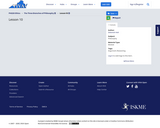
- Subject:
- Philosophy
- Material Type:
- Module
- Author:
- Deborah Holt
- Date Added:
- 02/13/2020

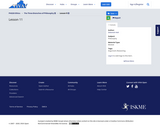
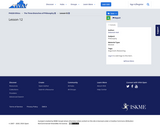
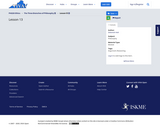
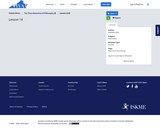
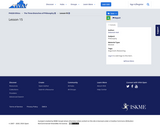
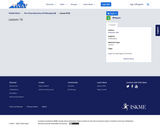
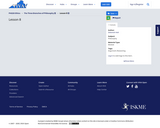
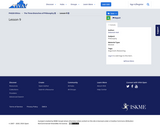
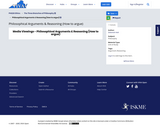

An exploration of complex contemporary ethical problems from healthcare, the environment, and bioethics. Issues include problems of drugs and addiction, stigma toward people with disabilities, terminal illness and chronic health needs, resource allocation in times of disaster, infectious diseases, gene editing, and humans’ relationship with their environment. Classical and contemporary ethical theories, moral theories, and the fundamentals of scientific integrity will be applied to make principled, defensible, moral judgments.
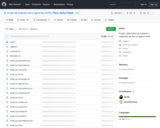
Para Todxs: Natal é um livro didático completo sobre lógica formal. Ele aborda noções fundamentais como consequência lógica e validade de argumentos, a sintaxe da lógica proposicional verofuncional (LVF) e a semântica de tabelas-verdade, a sintaxe da lógica de predicados de primeira ordem (LPO) com identidade (interpretações de primeira ordem), traduções (formalizações) do português para LVF e LPO, além de sistemas de prova em dedução natural (estilo Fitch) para LVF e LPO. Também são abordados alguns tópicos mais avançados, como a correção da LVF e uma introdução à lógica modal. O livro está disponível em PDF otimizado para visualização em tela, com links coloridos. Todos os arquivos fonte em LaTeX estão disponíveis, e podem ser também utilizados para gerar uma outra versão PDF otimizada para impressão. Posteriormente, versões especiais para visualização em tela de dispositivos eletrônicos, versões em folha preta, uma versão com fonte especial para disléxicos, além de um caderno com as soluções dos exercícios também serão produzidos. Um editor/verificador de provas para o sistema usado no livro está disponível online em andersonnakano.hyperphp.com, em versão traduzida ao português por Anderson Luis Nakano do editor original disponível em Open Logic Project.
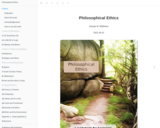
This book is an introduction to philosophical ethics intended for use in introductory college or high school level courses. It has grown out of lecture notes I shared with the first students who took my online Ethics course at the Pennsylvania College of Technology almost 20 years ago. Since then it has seen more development in a variety of forms – starting out as a pdf document, and then evolving into a static set of WordPress pages and finally now as a book written in bookdown and hosted at GitHub. This text represents my attempt to scratch a couple of itches. The first is my wanting a presentation of the major philosophical approaches to ethics that I can actually agree with and that is integrated into my overall teaching method. I tend to teach philosophy to beginners and so there is a fair amount of discussion of the tools used by philosophers and of the ways in which their approach differs from that of their colleagues in other disciplines.
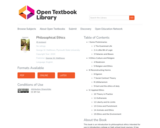
This book is an introduction to philosophical ethics intended for use in introductory college or high school level courses. It has grown out of lecture notes I shared with the first students who took my online Ethics course at the Pennsylvania College of Technology almost 20 years ago. Since then it has seen more development in a variety of forms – starting out as a pdf document, and then evolving into a static set of WordPress pages and finally now as a book written in bookdown and hosted at GitHub. This text represents my attempt to scratch a couple of itches. The first is my wanting a presentation of the major philosophical approaches to ethics that I can actually agree with and that is integrated into my overall teaching method. I tend to teach philosophy to beginners and so there is a fair amount of discussion of the tools used by philosophers and of the ways in which their approach differs from that of their colleagues in other disciplines.
There are of course many good quality ethics textbooks out there, and yet none has exactly matched my way of wanting to present the material. Teaching ethics over the years has been a process of active exploration and constant revision of my approach as I have come to a more nuanced and richer appreciation of what ethical thinking and theorizing is all about, as well as some ideas about how I think the main strands of argument relate to each other. Yes this is a partisan effort, but it’s all subject to revision and refinement based on, I hope at least, the better argument. That’s what I am trying to get across here.
The second itch I am trying to scratch has to do with initiatives in open education, and I’d like this text to contribute in its own small way to the much larger and more influential open source movement and philosophy of which I consider it a part. Knowledge is only ours to share. Yes of course writers, developers and publishers do hard work that deserves compensation. But intellectual property, it seems to me, is a false idol that deserves to be smashed. So here is my effort to chip away at it – knowledge should free us and and not sink us into both literal and figurative debt.
Table of Contents:
I Some Preliminaries
1 The Examined Life
2 A Little Bit of Logic
3 Fallacies and Biases
II Ethics Culture and Religion
4 Relativism
5 Religion and Ethics
III Reconstructing Norms
6 Egoism
7 Social Contract Theory
8 Utilitarianism
9 Kant and the ethics of duty
IV Applied Ethics
10 Theory in Practice
11 Euthanasia
12 Liberty and its Limits
13 Crime and Punishment
14 Animals and Ethics
15 Ethics and the Environment
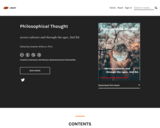
Philosophical Thought: across cultures and through the ages, is an open-educational resource (OER) to be used as a collection of readings for introductory philosophy courses. The objectives for developing and sharing this open resource are three-fold:
1. to provide a collection of philosophical works that can be used as a foundation for faculty and students to use in undergraduate philosophy courses
2. to provide a resource that is free to students
3. to provide a resource that compiles philosophical thought from a variety of cultures and eras
The works included in this book come from a wide range of sources. However, this book is indebted to Henry Imler’s editorial work on Sapienta and Phronesis, both of which are OER texts available on Pressbooks.
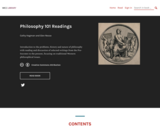
Introduction to the problems, history and nature of philosophy with reading and discussion of selected writings from the Pre-Socrates to the present, focusing on traditional Western philosophical issues.

This text is intended as an introduction to questions of moral philosophy. While the text itself is a survey, covering many of the topics in a standard philosophy course, the aim here is twofold–first to teach students about the power of stories as a vehicle for understanding moral questions, and second to give students a set of interpretive tools that will allow them to make good ethical decisions in a world that is becoming more ethically complex. At the risk of claiming too much for a course in moral philosophy, the most important skill students need when entering the working world is not so much a knowledge of marketing or accounting, finance, programming, or venture capital, as an understanding of the diverse audiences they will be working with as both colleagues and customers. In essence, the most valuable skills employers need today are human skills. In a world where we are are all attached to our social media accounts and we live and die by how many pings we receive on our phone, this text attempts to do something more old-fashioned–to tell stories about people–about their feelings, thoughts, desires. This text hopes to show both that each individual is unique and that we are all for better and for worse separate beings, but at the same time that we share with other creatures on this planet a sense of living, a wish for respect and dignity, and a connection to all that is. In teaching to face head-on the contradiction between being different and yet like everyone else I hope that the text will give students the tools to negotiate this difference.
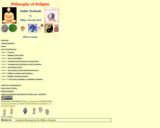
Here is a simple listing of what is to be considered in this text and course:
1. What is Philosophy of Religion?
2. What is Religion? What are the characteristics of Religion ?
3. What are the religions of the world?
4. What is God? What are the Attributes of deity (god) ?
5. Arguments for God's Existence: Are there any rational reasons to believe?
6. The Problem of Evil - Rational arguments for disbelief: how can God exist and ther be evil in the world?
7. Souls and the afterlife: What proof is there that souls survive death?
8. Faith vs. Reason - Are there other ways to find a basis for belief?
9. Religious Language: Do religious beliefs need to be based on truth? Should religious claims be subjected to scientific verification?
10. Morality and Religion: Is there any other basis possible for a moral foundation to support a social order?
11. What is the essence of Religion?
The objective of this work is to arrive at a critical, informed and accurate understanding of what religion is, what it is about and what value it may have in the contemporary world. It is designed to foster critical thinking concerning topics related to religion. It is designed to be challenging and hopefully of those who respond to the challenge it will prove to be rewarding of the effort.